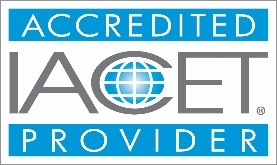Program Overview
The purpose of the Asset Liability Management School (ALMS) is to enhance the pre-commissioned examiner’s ability to analyze, assess and assign ratings for sensitivity to market risk and liquidity. This school provides comprehensive interest rate risk (IRR) analysis instruction with emphasis on evaluating IRR models. Additionally, ALMS expands liquidity analysis instruction beyond ratio analysis with an emphasis on managing liquidity risk.
Skills Taught
By the end of this course, students will have been taught how to:
- Assess IRR from through off-site and on-site analysis
- Assess a bank’s exposure to interest rate risk
- Determine the adequacy of the bank’s interest rate risk management policies and practices
- Analyze basic hedging and other interest rate risk mitigation strategies
- Assess liquidity from off-site and on-site analysis
- Assess a bank’s exposure to liquidity risk
- Determine the adequacy of a bank’s liquidity risk management policies and practices
- Analyze investment strategies
- Recognize and analyze individual securities
- Communicate a securities classification effectively in writing
- Communicate their assessment of the Sensitivity and Liquidity components effectively in writing
Duration and Format
This course contains:
- 32 hours of Pre-course work (Independent Self Study)
- 2 weeks of Facilitated classroom discussion / lectures
- Small group activities
- In-class case study
Level and Credits
Basic
Continuing Education Unit (CEU): 6.9
Continuing Professional Education (CPE): 83.0
Target Audience
FDIC participants should attend in accordance with the parameters outlined in the Examiner Training and Development Policy. State Banking Authority participants should have 17-21 months of risk management experience. Participants should attend this course after completing the Financial Institution Analysis School (FIAS) but before attending the Loan Analysis School (LAS). Attendance should be scheduled after the participant has had sufficient time to practice the skills acquired in FIAS and to complete the ALMS pre-course assignment. This course is open to appropriate staff of the FDIC and partner government regulatory agencies. This course is not open to the public or staff of private banks.
Prerequisites
Prior to attending participants must have:
- Completed the three previous Risk Management core schools
- Risk Management Orientation (FDIC only)
- Introduction to Examinations School
- Financial Institution Analysis School
- Reviewed or had exposure to:
- A bank's investment portfolio, including identifying investments for market risk, credit quality, accounting accuracy and investment strategies at least once
- A bank’s internal Asset Liability Management (ALM) modeling and policies and procedures related to interest rate risk and liquidity risk management.
- The bank’s assets and funding sources to determine Interest Rate Risk (IRR) profile
Pre-Course Assignment
The pre-course assignment should be completed the week or two just prior to the session and is due the Friday prior to the start of the session. Participants will need approximately 32 hours to complete the assignment.
- Complete the independent study including reading FDIC Policy and Guidance on Interest Rate Risk, Liquidity and Securities, and Derivatives
- Complete the off-site analysis for Bay Isle Bank
Post Course Recommendation and Feedback
As soon as possible after attending the course, the participant should perform the ALM examination function for a financial institution close to $1 billion in assets if possible. Soon after completing the school, students should serve as Operations Manager and oversee the funds management aspect of an examination at a complex institution to get additional practice in all of these areas.
A participant summary form is submitted to each participant's field supervisor or training contact approximately 30 days after the conclusion of the school.
Key Topics Covered
- Interest Rate Risk (IRR) Models
- The course looks at the three main types of IRR models, investigating the reasonableness of the model outputs. Students will begin to understand how different inputs can yield significantly different results, depending on the model used. Knowing the differences between gap, earnings simulation and EVE models is important for examiners.
- Sensitivity to Market Risk
- Using a case study, students analyze model outputs, assess the level of risk on a bank’s balance sheet, and review management’s policy and procedures and funds management practices. In the case study, students review and analyze a bank’s interest rate risk exposure, assign a rating and support the assigned rating in Report of Examination, Examiner Comments and Conclusions format.
- Liquidity
- Using a case study, students analyze liquidity model sources and uses and assess the level of liquidity sources. In the case study, students assess bank management’s policies and practices, assign a rating and support the assigned rating in the Report of Examination, Examiner Comments and Conclusions format.
- Securities
- Students assess a securities portfolio using available financial information and Bloomberg analytics; define the standards used to classify assets based on credit quality, and write up an adversely classified security.
More Information

The Federal Deposit Insurance Corporation is registered with the National Association of State Boards of Accountancy (NASBA) as a sponsor of continuing professional education on the National Registry of CPE Sponsors. State boards of accountancy have final authority on the acceptance of individual courses for CPE credit. Complaints regarding registered sponsors may be submitted to the National Registry of CPE Sponsors through its website: NASBARegistry.org

For more information concerning course content and administration, please contact Dan Hotz or Yolanda King-Brown.
